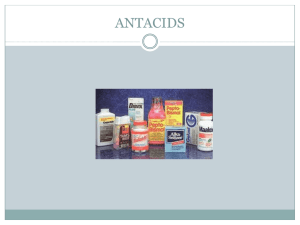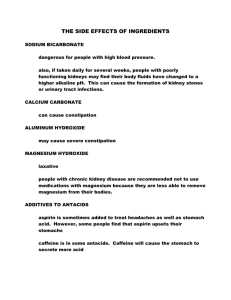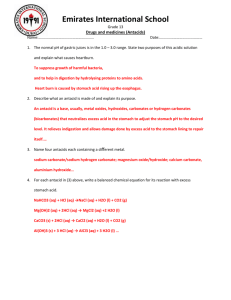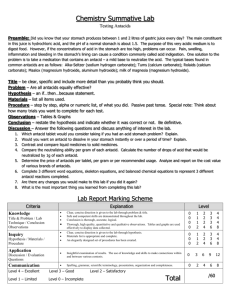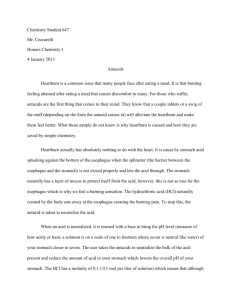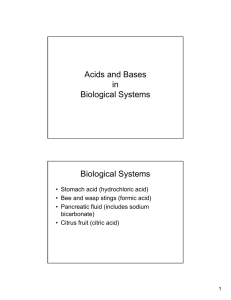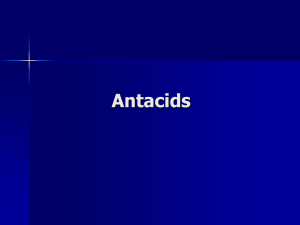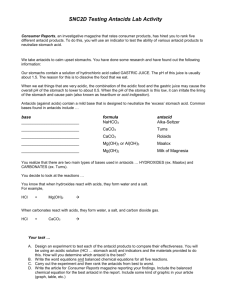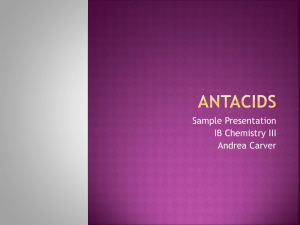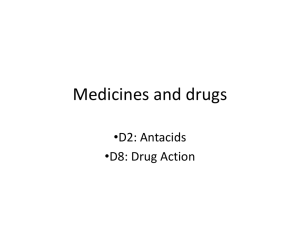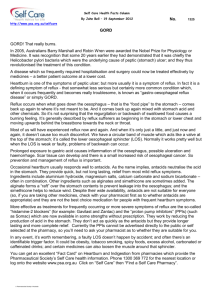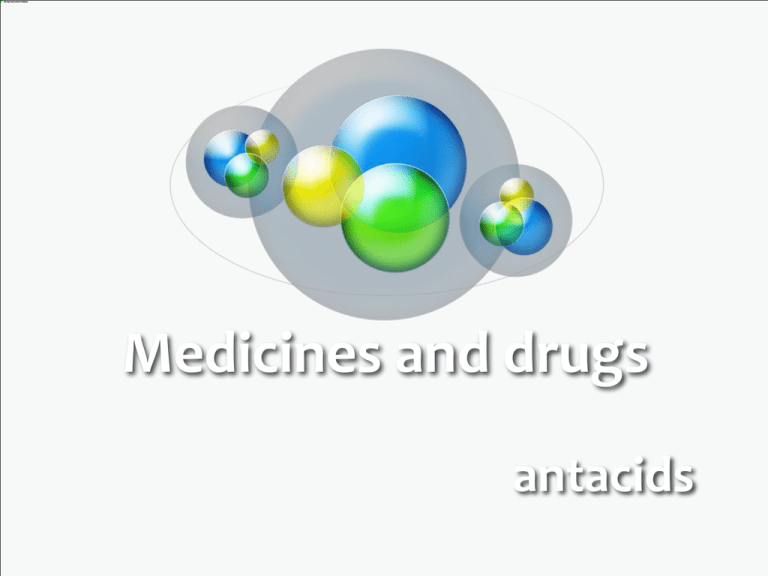
Medicines and drugs
antacids
Acid indigestion/heartburn
Acid indigestion (discomfort in stomach) and
heartburn (acid rising into oesaphagus) are
conditions which arise when excess hydrochloric
acid is produced by the gastric glands in the walls
of the stomach. The acid, which creates an acidic
environment of pH 0.3 to 1.2 is needed to
kill any bacteria in the food ingested
provide the optimum pH environment for the digestive
enzymes which act in the stomach.
Action of antacids
• Antacids are substances which are used to
neutralize excess hydrochloric acid in the
stomach so the pH level returns to the desired
level.
aluminium hydroxide, magnesium hydroxide,
magnesium carbonate and sodium hydrogen
carbonate are commonly used as active
ingredients in such antacids as they are weak
bases – write equations!!
sodium hydroxide or potassium hydroxide are not
used as antacids because they are strong alkalis
and are too corrosive to the body tissue.
equations
• Al(OH)3 (s) + 3HCl (aq) AlCl3 (aq) + 3H2O (l)
MgCO3 (s) + 2HCl (aq) MgCl2 (aq) + H2O (l) + CO2(g)
NaHCO3(s) + HCl (aq) NaCl (aq) + H2O (l) + CO2(g)
Alginates
Some antacids also contain
compounds called ‘alginates’ which
produce a neutralizing layer on top of stomach
contents and
prevent acid in the stomach from rising into the
oesophagus and causing heartburn.
Anti-foaming agents
Antacids which use carbonates will
also contain anti- foaming agents
such as dimethicone.
These reduce the bloating of the
stomach as a result of the carbon
dioxide production.

